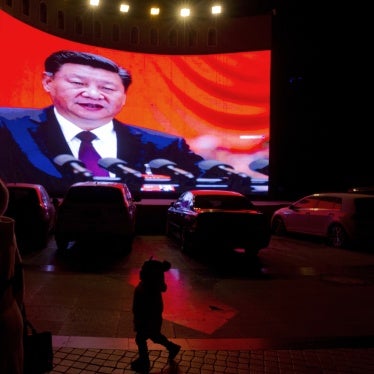By Caroline Stover
Burma’s reform era has seen unprecedented investment in the country. Military-owned companies and their cronies are fueling breakneck business schemes and grabbing land rights. Foreign investors and international financial institutions are pushing development projects. But on the ground, the promise of progress has left many communities struggling in this torrent of investment as generals , oligarchs, foreign companies, and ethnic armed groups seize a one-sided fire-sale of community lands for extraction and other projects.
This weekend in Burma's capital, Naypyidaw, government officials and international donors will gather at the third Myanmar Development Cooperation Forum, an important meeting on coordination of development partners in Burma. Meanwhile, a major change in the laws is in the works that could undermine the very outcomes international donors are pressing for.
Casting a shadow over the international optimism of the past few years is a package of laws, principally the Investment Law and the Land Use Policy, which threatens to thwart the promise of human rights assurances in Burma's fast-paced development since 2011.
These laws will privilege investment security over human rights protections—particularly with respect to land ownership, essential to securing basic human rights such as the right to housing and the right to food. The government’s plans ignore past land disputes and could further complicate efforts for Burmese people to seek redress in future land conflicts.
In eastern Burma, Human Rights Watch research found development projects fueling displacement, exacerbating food insecurity and propelling a further flow of migration to Thailand. Similar dynamics were documented by Amnesty International at the Letpadaung copper mine, where villagers’ crops were destroyed and families faced forced evictions. Those who have peacefully protested against such projects are increasingly arrested under assembly or trespass laws, creating a chilling effect in the very communities that should be benefitting from foreign investment.
Instead of addressing these problems, the Burmese government’s draft laws will make it even more difficult for communities to contest land abuses, one of Burma’s most pressing issues. Analysis by the Transnational Institute and International Commission of Jurists argues that as drafted, the investment law will ensure redress for companies – but not affected citizens. Combined with a draft land use policy that again gives priority to investment, these laws threaten to exacerbate existing land disputes and facilitate rights abuses.
Law drafting committees will continue to meet next week in Rangoon, making it crucial that donors point to the bigger picture in Naypyidaw this weekend. The Myanmar Development Cooperation Forum is a rare chance for donors to take up concerns about the package of laws, and instead push for a lasting human rights foundation that makes community participation a priority and provides genuine redress mechanisms for victims of land grabs.
Caroline Stover is a David W. Leebron Human Rights Fellow in Human Rights Watch's Asia division.






